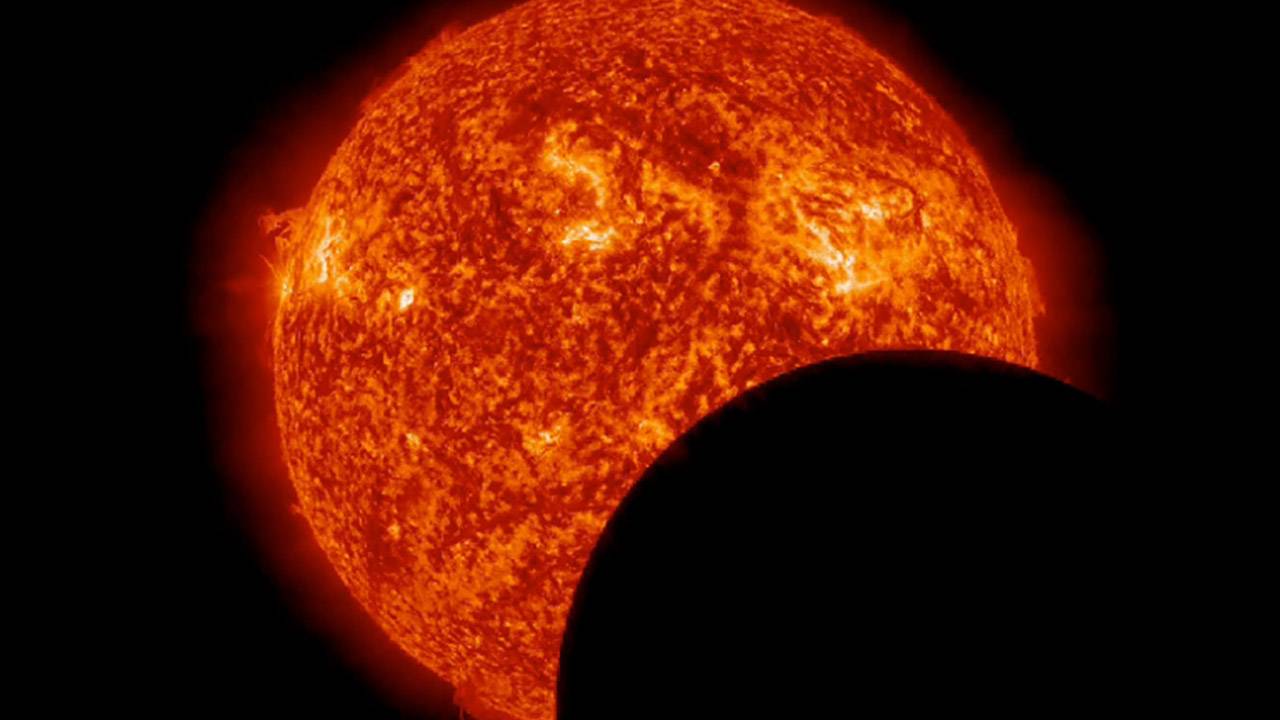Travel the Solar System with New PBS Programs This Year

PBS plans to air at least three new space-related programs this year, the network announced yesterday (Jan. 22). The shows spotlight August's solar eclipse that will sweep across the United States, the American astronaut who spent nearly a year in space and our species' furthest-traveling spacecraft.
The first show, Nova's "Solar Eclipse," will cover the solar eclipse just hours after it happens on Aug. 21, 2017. The total solar eclipse will be visible in a narrow band of states across the United States, moving from Oregon to South Carolina in about 90 minutes.
"NOVA's fastest turnaround film to date, 'Solar Eclipse' will be the ultimate companion to this spectacular celestial event," PBS representatives said in a statement. "NOVA will follow teams working on the forefront of solar science and solar storm detection, use immersive CGI animation to reveal the sun's secret mechanisms and integrate stunning sequences of the eclipse itself — including scenes filmed at iconic locations along the path of the eclipse — user-generated content, NASA footage and more." [Total Solar Eclipse 2017: When, Where and How to See It (Safely)]
In November 2017, PBS' attention will shift to Scott Kelly, the U.S. astronaut who spent almost a year in space between 2014 and 2015. "Beyond A Year In Space" will showcase Kelly's last day in space and return to Earth, and will also introduce NASA's new generation of astronauts who are aiming to travel beyond low-Earth orbit as a part of the Orion program. This documentary is also a follow-up to PBS' "A Year In Space," which followed Kelly's work in space in 2016.
"In addition to seeing Scott's long-awaited reunion with his family and friends at home in Texas, the film follows Scott and his identical twin brother, and fellow astronaut, Mark Kelly, as they undergo testing for NASA's twin study," PBS said in a separate statement. "The twin study hopes to identify precisely what changes Scott underwent after 12 months aboard the ISS [International Space Station] by comparing him to Mark, who spent the year on Earth."
Sometime this year, PBS will also air "The Farthest," a two-hour documentary that talks about the "extraordinary success" of NASA's Voyager mission. The twin Voyager 1 and Voyager 2 spacecraft both launched in 1977 and were originally tasked to fly by Jupiter and Saturn only. Thanks to an alignment of the planets, however, Voyager 2 was put on a trajectory to go past Uranus and Neptune as well if funding was available — which it was. Forty years later, both spacecraft are still active. Voyager 1 entered interstellar space in August 2012, the first spacecraft to do so.
"Between the Voyager anniversaries, the full solar eclipse that will be visible across the U.S. next August and the dramatic end of the incredibly successful Cassini mission to Saturn, we're looking at a spectacular summer for space-related stories,” said Beth Hoppe, PBS chief programming executive and general manager, in a third statement.
Get the Space.com Newsletter
Breaking space news, the latest updates on rocket launches, skywatching events and more!
"Voyager was — and continues to be — a trailblazer and a beacon of success for space exploration. And who knows — billions of years from now, human beings may all be gone and it could be carrying the very last evidence of our existence out into the universe."
Follow Elizabeth Howell @howellspace, or Space.com @Spacedotcom. We're also on Facebook and Google+. Original article on Space.com.
Join our Space Forums to keep talking space on the latest missions, night sky and more! And if you have a news tip, correction or comment, let us know at: community@space.com.

Elizabeth Howell (she/her), Ph.D., was a staff writer in the spaceflight channel between 2022 and 2024 specializing in Canadian space news. She was contributing writer for Space.com for 10 years from 2012 to 2024. Elizabeth's reporting includes multiple exclusives with the White House, leading world coverage about a lost-and-found space tomato on the International Space Station, witnessing five human spaceflight launches on two continents, flying parabolic, working inside a spacesuit, and participating in a simulated Mars mission. Her latest book, "Why Am I Taller?" (ECW Press, 2022) is co-written with astronaut Dave Williams.









